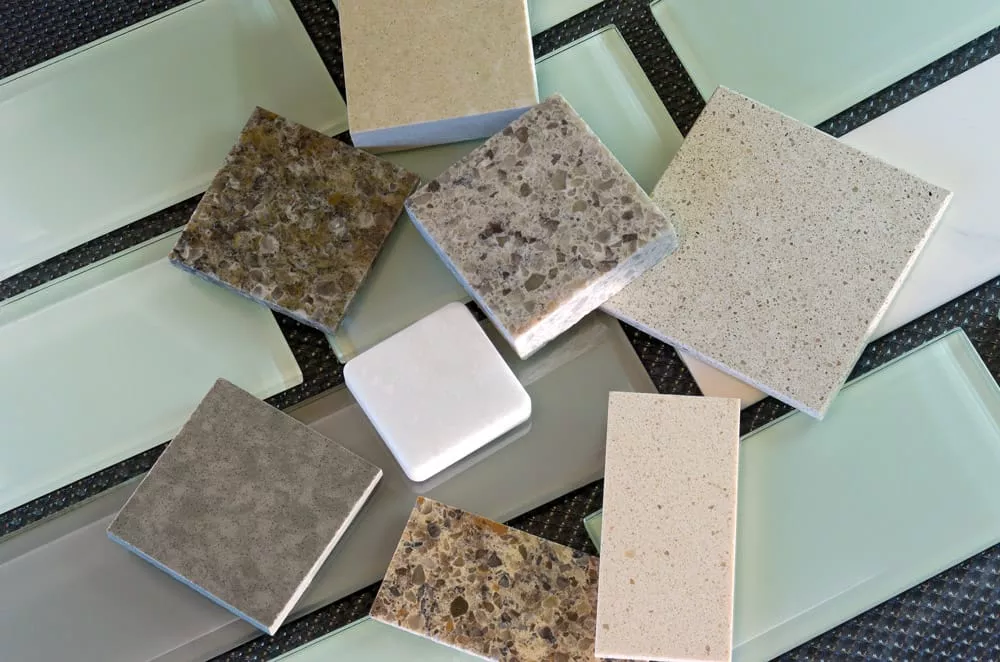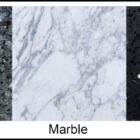If you are considering installing a new quartz countertop in your kitchen, you will probably want to find out how thick it is. In this article we will answer these questions and provide the information you need. The thickness of quartz countertops can vary depending on your budget and the style you are going for. In addition to thickness, you will want to consider other factors such as the color and style of the countertop. Depending on your preferences, you may choose a 1.5-inch or a 3CM thickness.
3CM
There are a few things to consider before choosing your next quartz countertop. If you plan to design your kitchen around different colors and patterns, a 3CM thickness will be your best option. In addition to offering the widest range of colors and patterns, 3CM quartz offers the most strength of any quartz thickness. If you are worried about the thickness of your countertop, the pros and cons of 3CM quartz are summarized below. Continue reading for more information!
Generally, a quartz countertop comes in two standard thicknesses, usually 2CM and 3CM. Other thicknesses are available upon request, but this can add to the cost and complexity of your project. Although quartz is standardized, your choice of thickness may depend on your location. Certain regions may have easy access to the material, whereas others will not. If you’re not sure which thickness you need, it’s best to check the availability of the materials in your area first.
2CM
If you are in the market for a new kitchen countertop, there are several things to consider, including the countertop thickness. Traditionally, stone countertops are available in two basic thicknesses: 2CM and 3CM. 2CM is thinner than 3CM and is often used for bathrooms. Its lower strength requirements make it ideal for bathroom applications. However, 3CM offers more value and eliminates laminated edges. It also gives the countertop a sleek and unique look.
When installing a 2CM quartz countertop, you can install it without the use of plywood. However, if you want the countertop to overhang more than 8 inches, you will need some kind of support. Additionally, you will have to adjust the cabinetry to accommodate a 2CM quartz countertop, since it is thinner than its 3/4 inch counterpart. However, a 2CM quartz countertop will not only be thinner than a 3/4 inch, it will also lower the overall height of the countertop.
3/4 inch
Whether you’re designing a kitchen or bath, you’ll find a 3/4 inch quartz countertop to be the perfect choice. Quartz countertops are comprised of 94 percent quartz and other pigments, which are what give them their color. Some quartz countertops may also contain recycled glass or metallic flecks. These resins make quartz countertops stain and scratch-resistant. And because quartz is non-porous, they don’t need any special sealing.
The thickness of a quartz countertop will affect its overall look and function. For example, adding half an inch can increase the heaviness of the countertop and increase the overall height. This thickness will also increase its price. For this reason, it is important to understand the pros and cons of each option before you decide which thickness is best for your needs. The thickness is one of the most important factors in selecting a countertop. You should choose a 3/4 inch thickness if you plan on using the countertop for food preparation, bar stools, or other high-use areas.
1 inch
If you’re looking for a cheap option for a quartz countertop, a 1 inch option is an excellent choice. Unlike 3cm slabs, which require additional support, a 1CM counter only needs a plywood or particle board surface. It’s also less expensive, but it has some disadvantages, such as seams. The other disadvantage is its limited sizes. This is one reason why it’s not a great choice for large countertops.
Before you make the purchase, it’s best to compare the different brands of quartz countertops. Some companies sell these products under the brand name Caesarstone, but all are made from the same material. Look for one that is made of engineered quartz, which is durable and beautiful. Then, choose one that matches the design of your base cabinets. This way, you won’t have to pay extra for a custom-made countertop. Alternatively, you can order one from a fabricator and have them cut a template of the base cabinets that you need.
1 1/4 inch
The thickness of your quartz countertop is essential for a variety of reasons. It can be either a focal point in the room, or a support feature. Before you make a purchase, make an imaginary cutout of the room and superimpose the counter over it. This will help you to visualize how the countertop would look in the space. If you’re unsure, ask someone to help you make the right decision. Quartz countertop contractors can help you visualize your new countertop in your home.
If you’re using an already-fabricated countertop, make sure the edges have been polished or laminated. These countertops are sometimes referred to as “prefab” and are typically made in other countries. They have polished or laminated edges and are generally thinner than one-quarter-inch quartz countertops. To make them thicker, prefabricated countertops are manufactured with strips of material adhered to the underside of the slab to create a denser appearance.
4 inch
If you are considering installing a 4 inch quartz countertop in your kitchen, you should first determine the use for which you will use it. This material is suitable for a variety of applications, but there are some advantages and disadvantages to consider before you make the final decision. This material can be cut to any shape, style, or thickness. You should also consider the type of edge finish that you prefer. Quartz can be shaped into many different shapes, so you can choose whichever one you prefer for your kitchen or bathroom.
When purchasing a 4 inch quartz countertop, it is important to understand how it is fabricated. Typically, fabricators lay the stone over plywood. Some of the slabs are only available at independent showrooms and big-box stores, so you’ll want to know whether the material you’re interested in is a suitable one for your project. Make sure to take the time to look at samples of the slabs and compare them against each other.
5 inch
While a 5 inch quartz countertop is not a low-priced option, it is easy to care for and can be quite durable. This countertop has some important tips to maintain it’s luster. To start, don’t use acidic or high-alkaline products on it. These include drain cleaners, oven and paint removers, bleach, dishwasher rinse agents, and acetone. For stubborn food stains and residues, use non-scratch nylon pads.
While quartz countertops are durable, it is still possible to get a chipped or cracked slab. If you’re not sure whether or not you’ll need a new slab, take some time to research the material. Some quartz countertop manufacturers even offer jumbo slabs, which measure 60 by 120 inches. These countertops can be made with almost imperceptible seams and don’t chip as easily as natural stone. Quartz countertops can also be curved, which makes them an ideal choice for floors and walls. In addition, fabricators can cut slabs to fit standard tile sizes.
6 inch
If you’re looking to improve the look of your kitchen, a 6 inch quartz countertop could be the answer. Quartz is more stain and moisture-resistant than most other countertops. Plus, the lighter patina hides seams. You can match the pattern of quartz to other colors and materials in your kitchen, such as stainless steel or copper. But if you’re looking for a more minimalist look, quartz may be just what you need.
You can choose between two types of quartz countertops – the prefabricated and the natural stone ones. The prefabricated versions offer a variety of patterns and colors. The white ones are particularly stunning, as they can mimic natural stone and marble. They’re also durable and never need to be sealed. This countertop style is also available with various edge shapes, so it can be used in any kitchen. While this option has a few disadvantages, it’s still a great choice for those who need a small kitchen.
8 inch
When buying a 8 inch quartz countertop, look for high-grade materials. These materials contain more than 94 percent of natural quartz and minimal amounts of premium resins and polymer materials. This combination produces durable, nonporous slabs that can be customized to meet the tastes and design ideas of any consumer. A quartz countertop also does not need any sealants or other finishing techniques. To choose the right material, shop around and compare prices.
Depending on the thickness of your new 8-inch quartz countertop, you may need to use plywood under the surface to absorb pressure and prevent cracks. Thankfully, there are three types of quartz countertop thickness. The thinnest quartz is only 1.3 cm thick. This type of countertop is easy to install and cheap, but is only useful for backsplashes. You should avoid using it for chopping or slicing foods on it.
10 inch
A 10 inch quartz countertop can span the width of a small kitchen island or a long room. Its span will be determined by the overhang of the countertop and its thickness. For thicker countertops, extra support is required to ensure proper balance. For this reason, you should choose a countertop with an overhang of no more than three-quarters of an inch. If you are installing a 10 inch quartz countertop, it is important to check the installation guide of the material provider.
Some manufacturers make a large variety of slab colors, including 10 inches. Be sure to ask about the overhang measurement before ordering. Many quartz countertops do not have a seam and must be supported by cabinetry. If you have overhang issues, you may be able to conceal them with an equivalent load bearing structure. However, this is not possible with prefabricated countertops because they are thinner than 10 inches. A 10 inch overhang can be problematic in many situations, so you may want to consider other materials instead.





